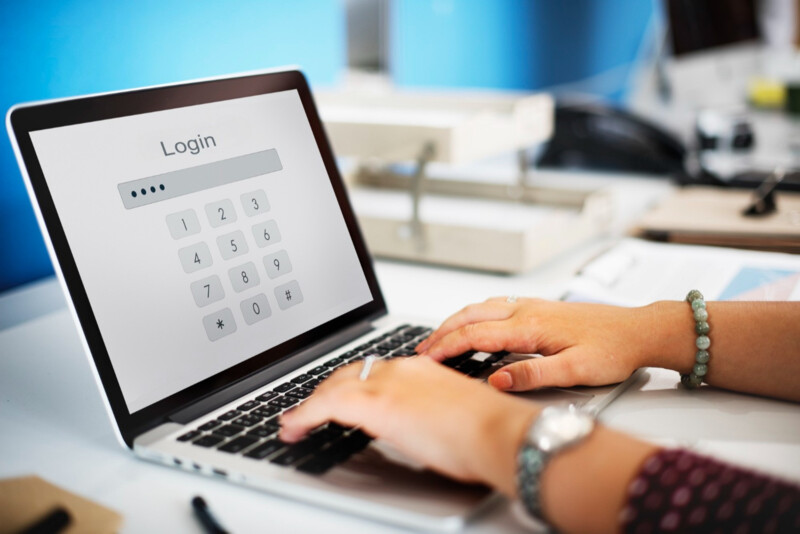Le travail en tant qu’indépendant comporte une partie administrative non négligeable et souvent très chronophage. Ainsi, vous êtes tenu à certaines exigences en matière de compte bancaire.
En choisissant d’ouvrir un compte en ligne, vous profiterez de multiples avantages. De plus, vous gagnerez un temps précieux que vous pourrez consacrer aux tâches qui sont au cœur de votre métier.

Quelles sont vos obligations bancaires en tant qu’indépendant ?
Pour les micro-entrepreneurs
Ouvrir un compte bancaire dédié à votre activité n’est pas obligatoire, car vous pouvez utiliser votre compte personnel tant que votre chiffre d’affaires annuel ne dépasse pas 10 000 € durant deux années civiles consécutives.
Toutefois, il est toujours préférable de se tourner vers un compte dédié à votre activité, car cela permet de cloisonner les opérations bancaires professionnelles. Ne pas mélanger vos dépenses personnelles et vos frais professionnels vous évitera de faire face à d’éventuelles requalifications par l’administration en cas de contrôle fiscal.
Pour les sociétés (EURL, SA, SAS, SARL…)
Si vous souhaitez exercer votre activité au sein d’une société, l’ouverture d’un compte bancaire dédié est obligatoire dès sa création, afin d’y verser le capital social. Faute de quoi, vous ne pourrez pas obtenir le certificat de dépôt de fonds qui est indispensable pour l’immatriculation de votre société.
Qu’est-ce qu’un compte en ligne pour indépendant ?
Il s’agit d’un compte pro qui permet aux indépendants d’effectuer l’ensemble des transactions financières nécessaires au fonctionnement de leur activité, sans avoir besoin de se rendre dans une agence bancaire.
Bon à savoir : les établissements bancaires qui permettent l'ouverture d'un compte en ligne ont le même statut juridique que les banques traditionnelles. Ce statut est celui d’un établissement de crédit et il est octroyé par l’Autorité de contrôle prudentiel et de résolution (ACPR). Depuis 1999, ces établissements intègrent le dispositif du Fonds de garantie des dépôts et de résolution (FGDR) qui prévoit l’indemnisation des clients, à hauteur de 100 000 €, si elles venaient à faire faillite.
Quatre avantages d'un compte en ligne pour les indépendants
Les raisons d’utiliser un compte en ligne, lorsque l’on est un indépendant, sont nombreuses.
1. Des économies sur les frais financiers
Les établissements bancaires qui n'ont pas de succursales physiques ont des frais de fonctionnement réduits. De ce fait, les frais de tenue d’un compte en ligne sont nettement moins élevés que ceux d’un compte dans une banque classique.
2. Une accessibilité immédiate à tous les services
Un compte en ligne vous offre un accès sur internet 24 h/24 et 7 jours sur 7, que ce soit depuis votre ordinateur de bureau ou sur votre smartphone grâce à l’application mobile. C’est un avantage très appréciable pour les indépendants qui font souvent leur comptabilité pendant le week-end. De plus, vous bénéficiez d’un chatbot qui vous permet de poser vos questions et d’obtenir rapidement des réponses. En cas de besoin, vous avez toujours la possibilité d’être mis en relation avec un conseiller.
Vous pouvez effectuer toutes vos opérations de transfert d’argent, n’importe quel jour, à l’heure qui vous convient, quel que soit l’endroit où vous vous trouvez, car votre banque est connectée en permanence à un réseau bancaire national ou international.
3. Des moyens de paiement adaptés
L’ouverture d’un compte en ligne vous permet de bénéficier de :
- la mise à disposition d’une ou plusieurs cartes de paiement (physiques ou virtuelles) avec la possibilité de paramétrer chaque carte de manière individuelle ;
- différentes solutions pour encaisser vos clients (service de dépôt de chèques, prélèvement, virement SEPA…).
4. Une gamme étendue de services complémentaires
Avec un compte en ligne, vous avez un accès à :
- un logiciel de facturation intégré
- un accompagnement dans vos formalités administratives
- des solutions de financement
- des tarifs préférentiels grâce à un partenariat avec une compagnie d’assurances…
Comment ouvrir un compte en ligne pour indépendant ?
L'ouverture d’un compte en ligne pour indépendant est simple et rapide, car tout se fait sur internet. Il suffit de fournir les documents suivants :
- pour un entrepreneur individuel : une pièce d’identité et, dans la mesure où il exerce son activité dans un local professionnel, un justificatif de l’utilisation de ce lieu ;
- pour une société : la pièce d’identité du dirigeant et un justificatif du local professionnel, si besoin est, plus le projet des statuts de la société.
